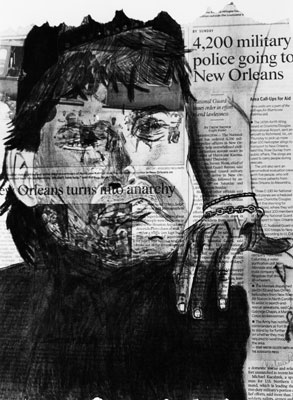All Nonfiction
- Bullying
- Books
- Academic
- Author Interviews
- Celebrity interviews
- College Articles
- College Essays
- Educator of the Year
- Heroes
- Interviews
- Memoir
- Personal Experience
- Sports
- Travel & Culture
All Opinions
- Bullying
- Current Events / Politics
- Discrimination
- Drugs / Alcohol / Smoking
- Entertainment / Celebrities
- Environment
- Love / Relationships
- Movies / Music / TV
- Pop Culture / Trends
- School / College
- Social Issues / Civics
- Spirituality / Religion
- Sports / Hobbies
All Hot Topics
- Bullying
- Community Service
- Environment
- Health
- Letters to the Editor
- Pride & Prejudice
- What Matters
- Back
Summer Guide
- Program Links
- Program Reviews
- Back
College Guide
- College Links
- College Reviews
- College Essays
- College Articles
- Back
The Power of Words MAG
For a long time, I’ve wondered about the power of words. I once came across a quote from Friedrich Nietzsche: “All I need is a sheet of paper and something to write with, and then I can turn the world upside down.” Ever since I’ve wondered, are words themselves, with no actions behind them, really capable of causing great harm?
I’ve realized the answer is yes. I discovered this four years ago, while reading the news coverage of a terrible tragedy that occurred in Los Angeles. On April 11, 2012, two graduate students who attended the University of Southern California were shot to death in their car near the campus. Their names were Ming Qu and Ying Wu, and they had come from China to study electrical engineering. The murderers were Javier Bolden and Bryan Barnes. Both were arrested and later convicted of the crime.
Around that time, I saw a headline on the Internet that made a deep impression on me: “Chinese Students Shot in a Luxury Car Near USC.” The title suggested that the students were killed because they were being ostentatious.
I felt uncomfortable when I read this article because I could not find details about how, exactly, these two students had been ostentatious. Without details, the article was seeding assumptions. It was the power of the words “luxury car” in the headline that set the tone of the story, and led readers to believe that Ming Qu and Ying Wu did something wrong and were not just innocent victims.
Then I read the comments below the article. Some of the popular comments showed “clapping” and “celebration” icons. “It is good to know that two bad guys got killed!” said one response. “It’s hard to believe that those students can afford a BMW. Their parents must be corrupt!” read another comment, which many users liked.
I believe the words “luxury car” were like a fuse that cast the student victims and their families in a critical light. The descriptions in the article were biased. Even so, I still couldn’t understand the lack of sympathy regarding the students’ death.
Behind the force of provocative words, the truth often gets lost. In journalism, words like “ostentatious” and “luxury car” have a powerful impact on readers regardless of the journalist’s intent. In this case, a few words completely changed the meaning of the lives of the murdered students. They became stereotypes of privileged Chinese students in America.
Fortunately, many journalists with better intentions reported a more accurate account of what happened to Ming Qu and Ying Wu. First of all, it was incorrectly reported that Ming Qu’s BMW was new and cost $60,000. The BMW was nearly 10 years old, and Ming had paid $10,000 for it (not that the price of the car should be relevant). He did not own a car during his first two years at USC, but needed one to commute to his job. He was generous and often gave rides to his friends. Ying and Ming shared an apartment with friends in an unsafe neighborhood in order to save money. Nothing indicated they were spoiled or rich.
After the murders, I met a teacher who knew the two students. With moist eyes, he said, “They were both outstanding students. I can’t understand why most of the news reports guided people to think negatively. Why didn’t those journalists report the event in a normal way?”
It was the first time I felt the power of not only words, but the importance of responsible journalism. Most people seem to blindly trust the media, because it is supposed to report the truth objectively. Because of this, journalists must be very careful of the power of their words and choose them responsibly. A few biased words can have a profoundly destructive effect.
In my mind, Ming Qu and Ying Wu suffered unspeakably – their lives taken by murderers and their reputations destroyed by journalists. Perhaps those journalists believed reporting the story in such a way would increase its popularity. But clearly this is irresponsible – page views should never be valued above the truth.
Through my extensive reading about Ming Qu and Ying Wu, I’ve gained a deep appreciation for the power of words and a respect for those who strive to write truthfully. This has inspired me to become a journalist committed to reporting extensively researched, unbiased news. This is the heart of good journalism, and the right way to contribute to society.

Similar Articles
JOIN THE DISCUSSION
This article has 0 comments.

With so many important events happening around the world, the influence of the media needs to be examined and, like anything else, kept in check. The tragedy that befell two Chinese students in Los Angeles hit particularly close to home as I live in China and hope to attend college in the United States.